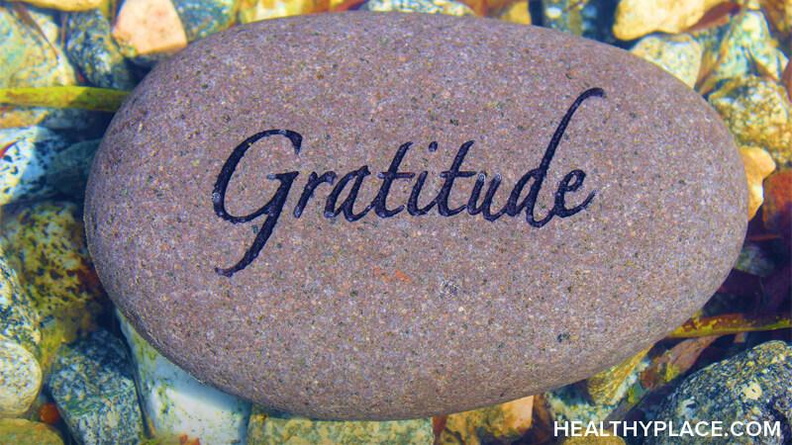Using Gratitude in the Recovery Journey

I like to practice gratitude in recovery. This is because recovering from a mental illness is difficult and often comes with dark moments. In my own journey, there have been many times when I've felt discouraged and disengaged and ultimately have asked myself, "Is recovering worth it?" Well, yes, it is worth it, but it's nice to have reminders. I've taken my gratitude practices very seriously in the last few years, and they've become essential to my recovery.
Why Is Gratitude Important to Recovery?
Gratitude is the catalyst that keeps me going. When I'm in a depressive episode, I get stuck in a loop of dread. I feel overwhelmed by all the negativity of life and paint myself as a victim.
But I'm not a victim. I see my life is actually pretty dang incredible once I take the time and effort to notice. Once I'm able to conjure up an appreciation of the good, I can exit the cycle of hopelessness. Acknowledging the positives becomes a reminder of why I am choosing to get better. Gratitude is important in my recovery.
What Is There to Be Grateful for in Recovery?
In a depressive episode, it's easy to think, "What is there to be grateful for?" But there are so many things in life that many forget to savor.
It's easy to be grateful for the big things in life: a job promotion, a new relationship, etc. It's more work to identify the small blessings in life: a sunny day, a good song, or a fresh cup of tea.
Once in group therapy, we were asked to share what our favorite part of our day had been. Someone responded that they were thankful for the extra crispy bacon on their cheeseburger. Years later, I haven't stopped thinking about sentiment. On my hard days, I ask myself, "What was the crispy bacon of my day?"
Practices to Express Gratitude in Recovery
There are a few tricks I've adopted to help me practice gratitude in recovery. If I'm feeling down, I'll encourage myself to write down ten things that I am thankful for.
If I'm feeling extra down, I'll find an upbeat song, and for the duration of that song, I will list things that I'm grateful for. At first, it's challenging, but after a minute, ideas start flowing, and I realize that there are so many small things I've repeatedly taken for granted.
A few times, I've even written my past self a letter. In those letters, I discussed my wins, any specific progress I've made, or goals I've accomplished, but most importantly, I thanked myself for deciding to keep going.
Gratitude When You're in Recovery from Mental Illness
I understand that it's not always easy to find the good when life feels down. When depressed, it can be difficult to work up the mental energy to focus on the good, but sometimes, all we need to do is find the extra crispy bacon of the day to remind ourselves that every single day brings something special.
Finally, I'd like to share a specific gratitude practice that I currently use in recovery to help me identify my special moments. I hope that others are able to either give it a try or find inspiration in it to find a strategy that allows them to cherish their special, daily moments.
APA Reference
Jarvis, M.
(2023, September 26). Using Gratitude in the Recovery Journey, HealthyPlace. Retrieved
on 2026, January 4 from https://www.healthyplace.com/blogs/recoveringfrommentalillness/2023/9/using-gratitude-in-the-recovery-journey
